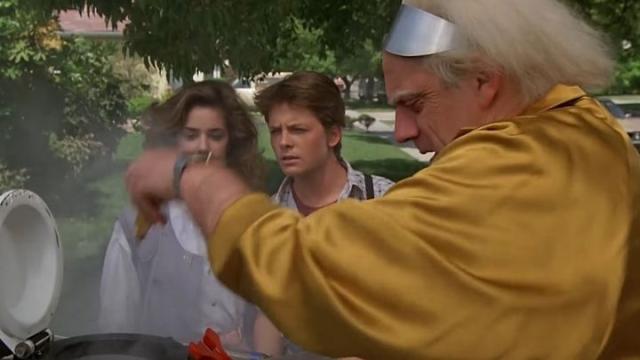Remember Mr. Fusion from Back to the Future? It was a system that used plastic waste and room temperature fusion to create a fuel powerful enough to make a 1980s car time travel.
Well, we might not be getting time travelling Deloreans or room temperature fusion anytime soon, but we might be able to soon have ships in the ocean fuelled by marine plastics, according to new research.
Researchers from the National Academy of Sciences of the United States of America have found a way to convert marine plastics into fuel for ships, effectively cleaning up the ocean while also keeping the world greener (or bluer).
Cracking down on plastic is essential to creating a greener, healthier world, so being able to turn plastic waste into something useful might actually be a good way of going about it. Save our oceans!
How does it work?
Put simply, ocean ships would need to be kitted out with intense plastic conversion technology, which allows for the effective utilisation of the remaining energy in ocean plastics. This is similar to how we currently use coal, although where we rely on its carbon properties to convert it into energy, we’d rely on the chemical makeup of plastics to create energy. The process is called ‘Hydrothermal liquefaction’ (HTL), which puts plastics through intense pressure (up to 300 bar) and intense heat (up to 550 °C) in creating what is called ‘blue diesel’.
The plastic is collected from the ocean through a filter, then shredded and gathered in a centrifugal sifter for drying the water. Waste organics and salt are disposed of and processed back into the ocean, and the now dried plastics are mixed with desalinated water and sent to the reactor, after being mixed up to create blue diesel.
Although it’s still a form of fuel that involves carbon, the researchers aren’t too fussed about the CO2 impact it could have on Earth. In the report published by the PNAS, it’s projected that if the system ran continuously for 10 years, the percentage of its total emissions would be less than 0.02 per cent of the global carbon budget.
“Unlike petroleum fuels, plastic-derived fuels have low sulfur content, meaning that their combustion will not release sulfur oxides, which is a desirable outcome given the importance of SO2 in the formation of pollutants, and new regulations limiting sulfur content in fuels,” the research paper reads.
This HTL method is predicted to produce enough energy to power itself, a ship and generate extra fuel when used on an ocean-voyaging ship. What’s more is that booms in ocean garbage patches could be used to absorb plastic waste and create more blue diesel. We could end up with an abundance of the stuff.
When could we have ships powered by plastic waste?
We’d be unlikely to see blue diesel on cargo ships within the next few years, but it’s certainly a developing technology worth keeping an eye on. It could help clean up the ocean, rid the world of plastic and act as a fuel source – a trifecta of usefulness often not available to us.
The composition of the plastic waste is also important to the process, as is the size of the ship and the power requirements of the engine. It makes filtering out plastics difficult when plastics in the ocean come in all shapes and sizes, as do ships. This makes it difficult to develop, but again, we’re still in early days.
Although the technology still burns carbon, it says a lot to get rid of a potential oil spill, and it cleans up a massive problem currently plaguing our world and our marine life. It could be used specifically on ocean cleanup ships, as the paper suggests, where the fuel would be in abundance anyway.
“Future work can evaluate effects of additives, contaminants and ageing on HTL oil yields and the suitability of plastic-derived fuels for existing fuel delivery systems and engines.”
